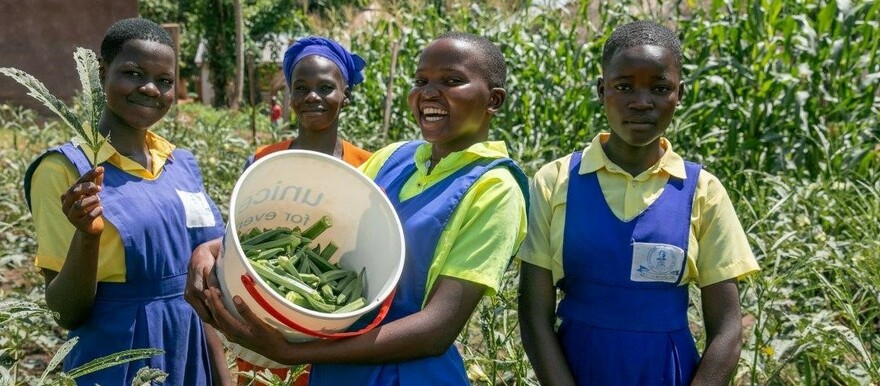The German Government has provided an additional €20 million to UNICEF and World Food Programme (WFP) for the Joint Resilience Project in South Sudan, Germany’s Embassy in Juba said in a statement on Thursday.
The statement further stated that the contribution, channelled through the German KfW Development Bank, seeks to extend and expand humanitarian services to improve and build community resilience in targeted urban and peri-urban areas of the country.
With this new contribution, Germany confirmed an increase in its support to the Joint Resilience Project, launched in December 2019.
The project is designed to increase community resilience to shocks and stressors in South Sudan by increasing access and use of a broad range of services.
These include education, child protection, Water, Sanitation and Hygiene (WASH), health, nutrition, food security, and livelihoods services.
Christian Sedat, the Ambassador of Germany in South Sudan, said: “Germany’s financial contribution to the Joint Resilience Project now amounts to a total of €112 million making it one of the flagship projects of German development cooperation in South Sudan. Germany is proud to fund this project, which helps to improve the livelihoods of more than half a million South Sudanese people. Through the collaboration with UNICEF and WFP, we are able to provide much needed basic services.”
Implemented in Juba, Torit, Yambio and Aweil, the project’s activities encompass the rehabilitation of schools, installation of water and sanitation facilities, provision of daily school meals, immunizations, and training for teachers, as well as health and nutrition workers.
Hamida Lasseko, UNICEF Representative said: “We are immensely thankful to the German Government for this continued support. With these funds, UNICEF can further its efforts in providing vital services to children and families in South Sudan, ensuring they have the services and community resources and structures to cope with and adapt to various challenges.”
WFP’s Country Director in South Sudan Mary-Ellen McGroarty stated, “This programme is extremely important to build long-term resilience and food security in South Sudan as it supports families through all their life stages. From malnourished children and students at schools through to working adults, the programme ensures no one is left behind.”
The project has already supported over 51,000 school children for their education through scholastic materials, teacher training and school meals.
Almost 405,000 children and pregnant and breastfeeding mothers benefited from support to treat and prevent malnutrition, and nearly 48,000 farmers were supported with resilience-building activities.
The project has also supported the construction of water and sanitation facilities in 52 schools and 47 health facilities.
The statement indicated that the German Government, UNICEF and WFP will continue to work closely with the communities and other stakeholders to ensure sustainable future for communities in South Sudan.




